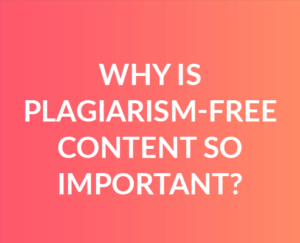One of our most commonly asked client questions is: “How long should my blog posts be?”
The truth is, there’s no definite answer to this question, as article length depends on a number of factors.
Data from Hubspot says that the ideal blog post length should be 2,100-2,400 words. But that doesn’t mean you should always aim this high (or this low, depending on how you look at it).
In this guide, we’ll be sharing the factors that affect blog post length, and how to make sure you’re including enough words – but not too many – in your articles.
Factors Affecting Blog Post Length
Article length can vary depending on several factors:
- Your audience. If you’re writing for people who are too busy to read lengthy blog posts, or simply don’t have the attention spans for in-depth online reading, you’d do better writing short, sweet and to-the-point articles.
- The stage of the buyer’s journey you’re appealing to. If your website visitor has never heard of your product before, they’re unlikely to want to read a long, in-depth blog post covering its features from A to Z. On the other hand, if they’re almost ready to make a purchase, they’ll appreciate a longer guide-type blog post detailing the factors that may influence their buying decision.
- The aim of your blog post. For instance, if you’re trying to encourage reader engagement by making a point or asking a question, then shorter, discussion-based articles may work better.
- The subject of your article. Some subjects are more open-ended than others. If you have more to say about a topic, then by all means, write more. Just make sure you’re not rambling.
- The type of article you’re writing. This links into all of the above, and is discussed in more detail below.
Word Count Based on Article Type
It’s unlikely that you’ll only write one type of article on your website’s blog. Different types of articles have different recommended word counts:
Pillar pages, which are intended to cover more content than a typical blog post, have a longer average length of around 4,000 words.
Listicles fall between 2,300 and 2,600 words. This is dependent on how many items are featured in the list.
How-to blog posts are usually around 1,700 and 2,100 words. Again, this depends on the complexity of the topic you’re writing about.
“What is” blog posts, or blog posts that answer a question, should be around 1,300-1700 words in length.
Blog posts that ask a question, on the other hand, may be as short as 200-500 words. Yoast recommends at least 300 words to help Google better understand what you’re writing about.
This should tell you something obvious: generally, for SEO, the longer, the better. But article length can still vary on an individual basis.
Optimizing Article Length
The only way to truly know the ideal length of your proposed blog posts is to do some complicated numberwork, using data from existing articles to determine how many words you need to win over your audience (and Google).
Thankfully, we don’t have to do this work ourselves anymore. There are clever tools that can do the data generation for us, and Surfer SEO is our favorite. We use Surfer to optimize all our clients’ blog posts – for word count and other factors, like keywords, headings, bold words, images, and article structure.
It’s Not All About Word Count
A final thing to keep in mind is that word count isn’t the only area that you should focus on if you’re aiming to optimize your articles for search engines. There are several other SEO practices to implement, including:
- Adding alt text to images
- Proper backlinking
- Writing to capture Google’s featured snippet
- Correct keyword use
- Achieving topic and domain authority
While there’s no denying the importance of hitting the article length sweet spot, don’t forget about the rest!
If you’d rather hand over the admin of planning and producing blog posts for your business or your clients, book a call with us to discuss our tailored monthly content plans.





